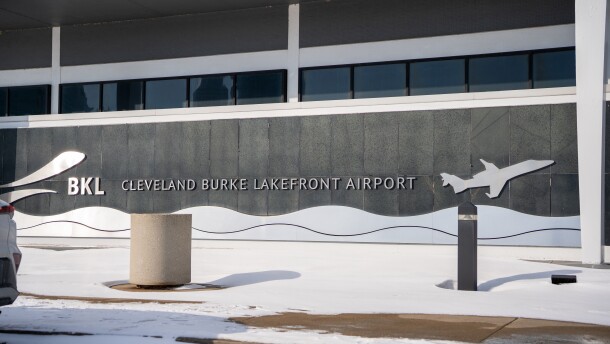A community survey is now soliciting residents' opinions, and city officials will join an Ideastream Public Media public forum Wednesday to discuss the airport's future.
Latest Headlines
- A 4th U.S. soldier has died as the war with Iran further engulfs the region
- Beware of ’false spring.' What temporary winter warmups could mean to dormant Northeast Ohio plants
- 'It gets your blood flowing.' Northeast Ohio hikers embrace winter for better health
- Hezbollah strikes Israel as American and Israeli planes pound Iran
- Congress gears up for vote on Trump's war powers in Iran — after the battle began
Editors' Picks

Colorectal cancer is now the third most common cancer and the second leading cause of cancer-related deaths worldwide, according to the World Health Organization.
-
The law, the same one used to prosecute Joe Biden's son for illegal gun possession, has united an array of strange bedfellows, from conservative gun rights groups to liberal civil liberties groups.
-
U.S. Sen Jon Husted (R-OH) said businesses should get the break but his Democratic opponent former U.S. Sen Sherrod Brown said it should go to working Ohioans.
-
U.S. Rep. Mike Turner (R-Dayton) reacted to the strikes on CBS Face the Nation on March 1.
-
The high prices came as U.S. and Israeli attacks on Iran and retaliatory strikes against Israel and U.S. military installations around the Gulf sent disruptions through the global energy supply chain.
-
The deaths of three U.S. service members mark the first American casualties since the start of operation "Epic Fury" on Saturday. President Trump said "there will likely be more" Americans killed.
-
In a scathing review, the top US medical journal's editorial board warned that the "destruction that Kennedy has wrought in 1 in office might take generations to repair."
-
Several leaders voiced support for the operation — but most, including those who stopped short of condemning it, called for restraint moving forward.
-
Top lawmakers were notified about the operation shortly before it was launched, but the White House did not seek authorization from Congress to carry out the strikes.
-
The Iranian government has declared 40 days of national mourning after Khamenei was killed in a U.S.–Israeli attack on Saturday.






















